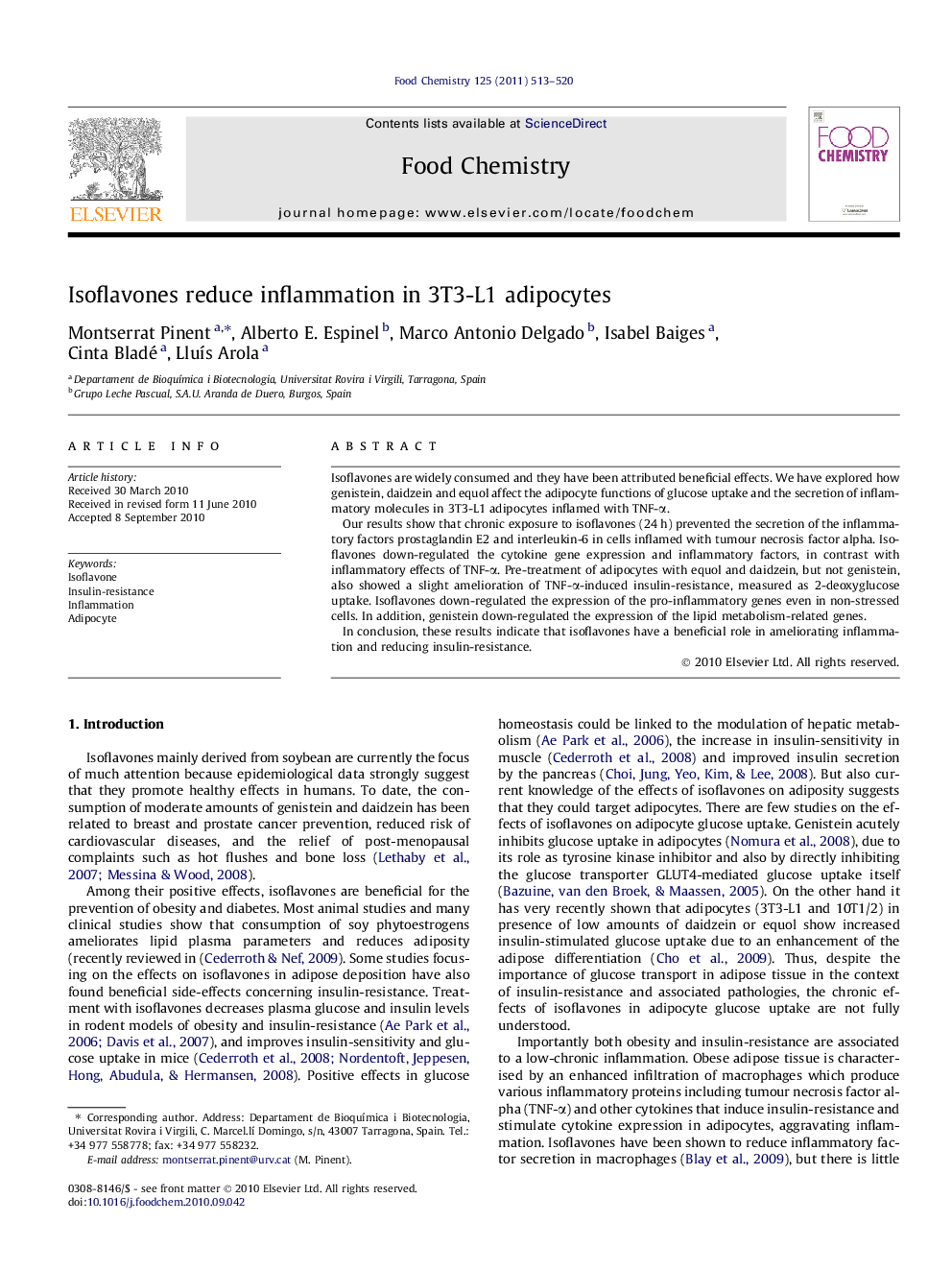| Article ID | Journal | Published Year | Pages | File Type |
|---|---|---|---|---|
| 1189418 | Food Chemistry | 2011 | 8 Pages |
Isoflavones are widely consumed and they have been attributed beneficial effects. We have explored how genistein, daidzein and equol affect the adipocyte functions of glucose uptake and the secretion of inflammatory molecules in 3T3-L1 adipocytes inflamed with TNF-α.Our results show that chronic exposure to isoflavones (24 h) prevented the secretion of the inflammatory factors prostaglandin E2 and interleukin-6 in cells inflamed with tumour necrosis factor alpha. Isoflavones down-regulated the cytokine gene expression and inflammatory factors, in contrast with inflammatory effects of TNF-α. Pre-treatment of adipocytes with equol and daidzein, but not genistein, also showed a slight amelioration of TNF-α-induced insulin-resistance, measured as 2-deoxyglucose uptake. Isoflavones down-regulated the expression of the pro-inflammatory genes even in non-stressed cells. In addition, genistein down-regulated the expression of the lipid metabolism-related genes.In conclusion, these results indicate that isoflavones have a beneficial role in ameliorating inflammation and reducing insulin-resistance.
